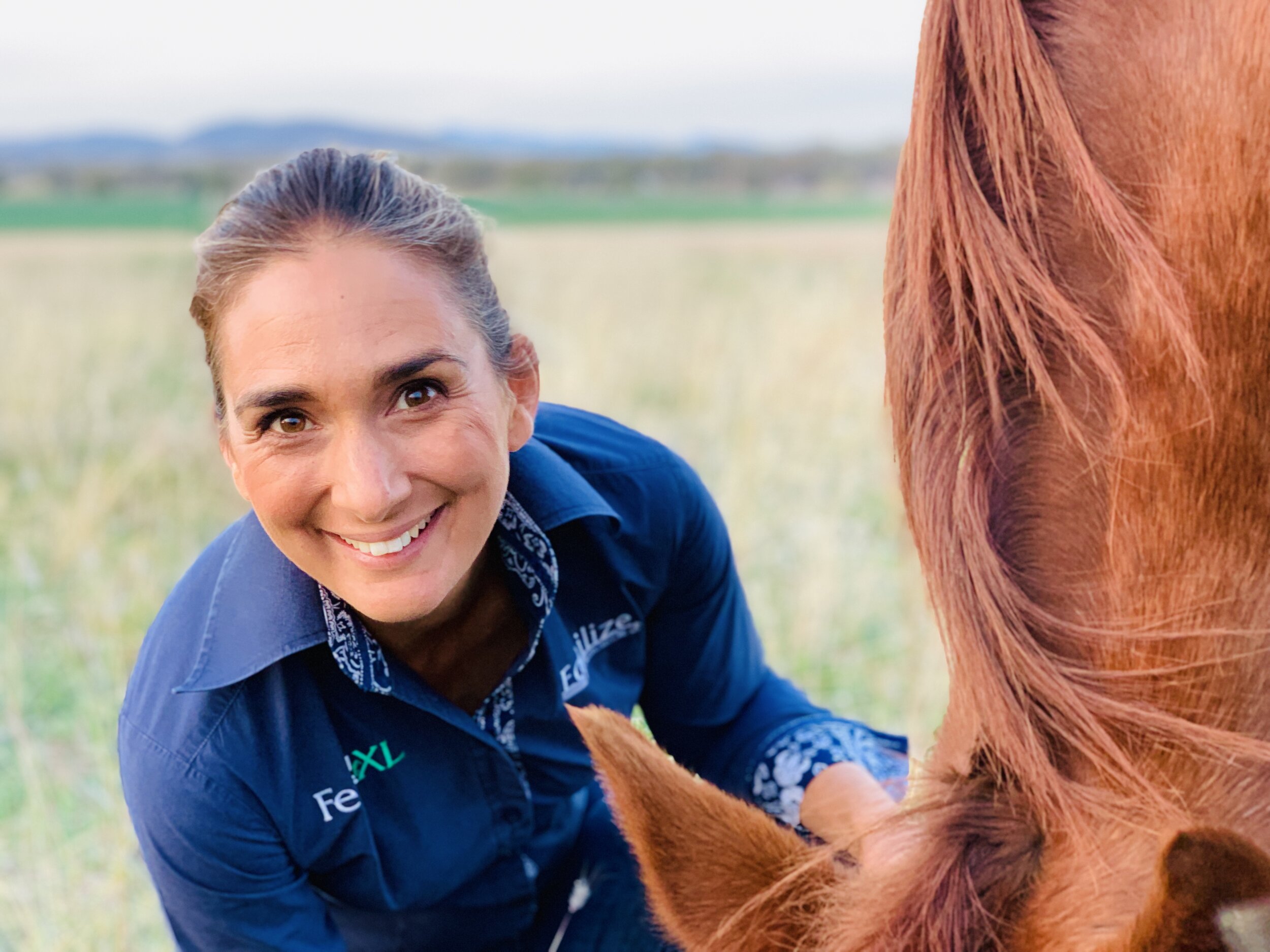
Find out who we are.
About Us
Equine Integrated Health is a collaboration between likeminded, passionate health professionals to drive innovation within the equine industry for the betterment of horse health and welfare.
By utilising cutting edge research, we aim to help advance veterinary healthcare to proactively optimise health. Our goal is to provide an integrated, data-driven service dedicated to optimising equine health, welfare and performance.
Our initial research project is to determine what the healthy horse microbiome looks like. The goal of this research is to develop a service for usage by veterinarians, horse trainers and owners to proactively manage horse health, and pathology.
Dr. Stephanie Bond
Dr. Bond is passionate about providing access to cutting edge research to those who will utilise it to provide better welfare for horses. A prolific researcher who has co-authored 17 papers in the equine veterinary space, Stephanie brings a rare combination of extensive academic experience as well as intimate practical knowledge of the equine industry. She obtained a Bachelor of Veterinary Science (Hons) and a Bachelor of Animal Science from the University of Melbourne in 2013, and received a PhD in Veterinary Medical Sciences from the University of Calgary in 2019. Dr. Bond was the first recipient of the Storm Cat Career Development Award (Grayson-Jockey Club Research Foundation) to be enrolled at a university outside of the USA. She is the founder of Equine Integrated Health.
Dr. Nerida Richards
Dr. Nerida Richards graduated from the University of New England with a degree in Rural Science in 1999 and a PhD in Equine Nutrition in 2004. She is a registered animal nutritionist (equine) with the Nutrition Society of Australia. Dr. Richards founded Equilize Horse Nutrition in 2003, providing expert technical support to feed and supplement companies in Australia and abroad. She developed and commercialised FeedXL, an online equine nutrition calculator used worldwide.
Professor Gene Tyson
Professor Gene Tyson is a microbial ecologist and world-renowned expert in culture-independent molecular approaches and bioinformatics for characterising microbial communities. In 2020, Queensland University of Technology (QUT) recruited Professor Tyson to establish a new centre of excellence for microbiome research (CMR). As Director of CMR, Professor Tyson’s team employ the meta-omic approaches he helped pioneer to investigate microbial communities in a wide range of habitats.
Over the last decade, Professor Tyson has been at the forefront in the development and application of culture-independent molecular approaches that provide direct access to microbial “dark matter”. His research team actively develop new ways to analyse metagenomic, metatranscriptomic and single cell data.
Professor Tyson’s research discoveries have been recognized by the Australian Society for Microbiology, who awarded him the Frank Fenner Award in 2015, and International Symposium on Microbial Ecology (ISME), who named him Young Investigator Award in 2016. In 2019, he was recognized as a Highly Cited Researcher (top 1% of cited scientists).
Professor James Gilkerson
Professor James Gilkerson is an equine veterinarian whose research interests are focussed on the diagnosis, epidemiology and prevention of infectious diseases. James completed his veterinary studies at the University of Sydney, where he was awarded a BVSc, a BSc (Vet) and a PhD. James is currently a Professor of Veterinary Microbiology and Director of the Centre for Equine Infectious Disease at the University of Melbourne. James is particularly interested in equine infectious diseases and has recently become involved in the National Centre for Antimicrobial Stewardship at the University of Melbourne, where his research extends to antimicrobial use and stewardship in companion animals, horses and production animals. The author of more than 100 peer reviewed publications, James has written several textbook chapters and has supervised 17 PhD students to completion.
Professor Gilkerson has been an invited, keynote and plenary speaker at veterinary conferences in Australia and overseas. He has served on the Board of directors of the Australian Veterinary Association and is currently the Chair of the scientific organising committee for the 11th international conference on equine infectious diseases.
Professor Gilkerson is a Past-President of Equine Veterinarians Australia and the Victorian Division of the AVA. He was awarded the 2008 Australian Veterinary Association President’s Prize and in 2009 was made a Fellow of the Australian Veterinary Association. In 2020 he was awarded the Spirit of SAEVA award by the South African Equine Veterinary Association for services to equine veterinary science.
Dr. Simon McIlroy
Dr. McIlroy is a microbiologist with more than 15 years of experience researching complex microbial communities. He completed his PhD in biotechnology at La Trobe University where he was awarded the David Myers University medal for the top student in the Faculty. He then went on to complete postdoctoral research positions at Aalborg University in Denmark and the University of Queensland.
In 2020 he was awarded a Future Fellowship from the Australian Research Council to continue his research at the Queensland University of Technology where he is Deputy Director of the newly formed Centre for Microbiome Research. His research has predominantly focused on the microbiology of wastewater treatment and anaerobic digestion, which are viewed by many as model systems in microbial ecology. Dr. McIlroy played a central role in the development of the MiDAS Field Guide for the microorganisms important for wastewater treatment (https://www.midasfieldguide.org/), which provides information on the microorganisms identified to be key to system performance accessible for researchers, plant operators and engineers working in the field.
Dr. McIlroy’s current research applies bioinformatic and microscopy-based techniques to identify novel metabolic strategies employed by microorganisms in a range of environments, including those utilising methane in natural sediments important for the global carbon cycle and climate change, as well as species associated with disease states in the human gut. He has published more than 50 research articles and secured $4M in competitive research funding. The research of Dr. McIlroy and his standing in the field has been recognised with several prominent awards, including the Distinguished Alumni Young Achiever Medal from La Trobe University and the prestigious Sapere Aude Research Talent Award from the Danish Council for Independent Research.





